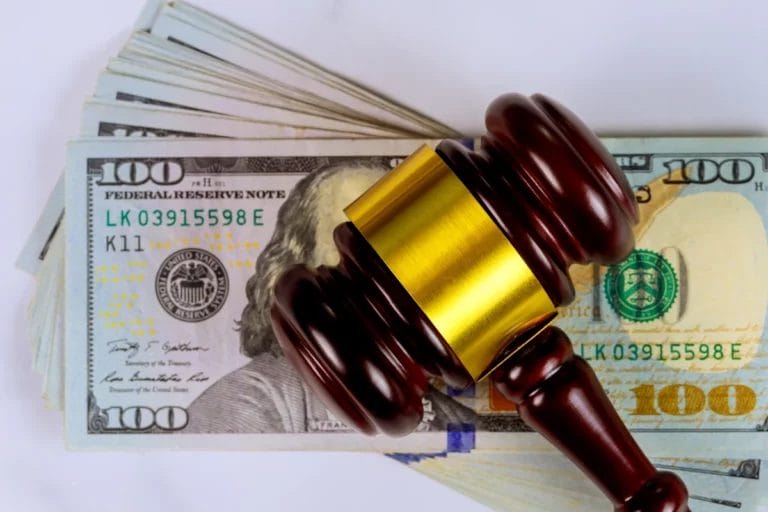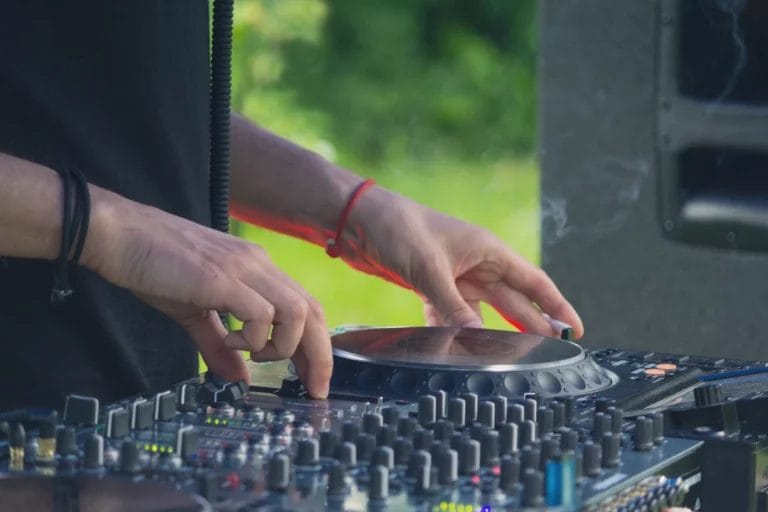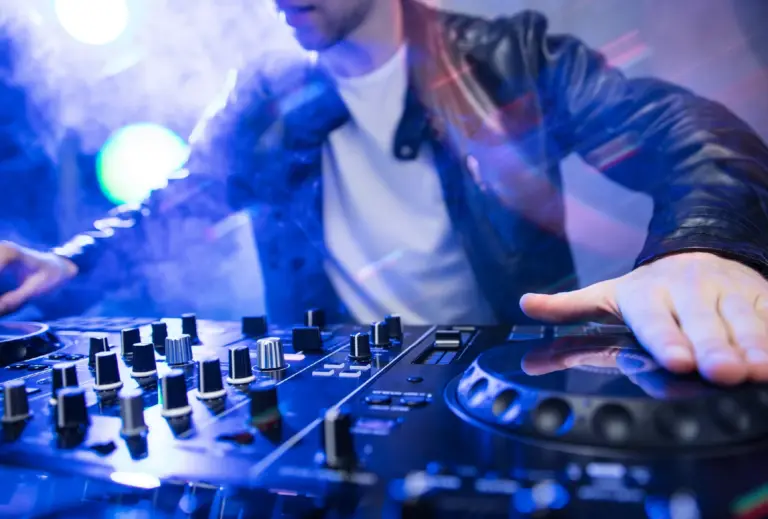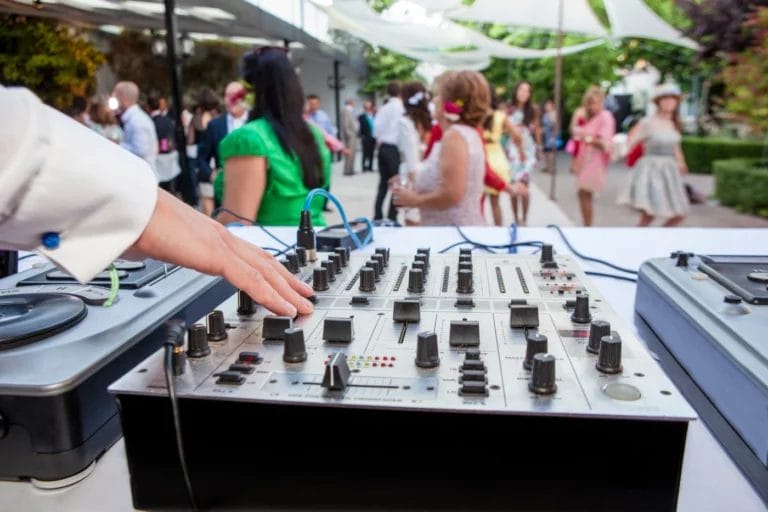
JoAnne Hammer | Program Manager
JoAnne Hammer is the Program Manager for Insurance Canopy. She has held the prestigious Certified Insurance Counselor (CIC) designation since July 2004.
JoAnne understands that starting and operating a business takes a tremendous amount of time, dedication, and financial resources. She believes that insurance is the single best way to protect your investment, business, and personal assets.
JoAnne Hammer is the Program Manager for Insurance Canopy. She has held the prestigious Certified Insurance Counselor (CIC) designation since July 2004.
JoAnne understands that starting and operating a business takes a tremendous amount of time, dedication, and financial resources. She believes that insurance is the single best way to protect your investment, business, and personal assets.
Even the most famous DJs face unexpected bumps in the road — because no one’s immune to a bit of chaos.
Steve Aoki injured an attendee during a crowdsurfing incident. During an Avicii concert, a VIP seating platform collapsed and injured 30 people. Skrillex also injured a fan in a crowdsurfing incident that cost $1.6 million in damages.
Without insurance, you could get stuck with expensive claims like these, no matter how big or small-time you are.
The Impact of Real-World DJ Liability Risks
Think of DJ liability insurance as a club bouncer. It’s extra muscle you didn’t know you needed until something went wrong. These five real-life liability claims are proof that “off-beat” situations can happen to any DJ at any gig.
#1. Soaked Room With a View | $9,000
While performing at a wedding, a DJ brought strobe lights and a fog machine for extra effects. During her performance, the fog machine triggered the emergency sprinkler system, causing water damage to the entire room.
The venue sent the DJ a cleaning and repair bill.
How to Avoid Claims Like This
Property damage claims from your gear are no fun. Try these tricks to ensure you don’t literally tear the roof off your next venue or event space:
- Don’t put fog machines and other special effect machines near windows
- Bring your own non-slip mats to ensure booths or gear don’t slide or scratch the floors
- Keep your fog and smoke machines in ventilated areas
- Buy and use grippers or stoppers to keep your booth or gear from sliding
- Buy a rolling cart to haul your equipment to and from spaces
How DJ Insurance Helps
Mobile DJ liability insurance and DJ equipment insurance can cover repair or cleaning bills for all kinds of property damage claims.
This coverage has your back if your fog machine causes water damage, your DJ booth scuffs a venue’s floor, or you leave a huge dent in the drywall while packing up your equipment.
#2. Loose Cord Debacle | $2,000
While a DJ set up his booth at a corporate party, a guest tripped over one of the loose cords and broke their wrist. They sent the DJ the medical bills.
How to Avoid Claims Like This
Accidents happen, even in the best setups. But a little prep keeps the vibes flowing so you can avoid the unexpected ‘tangle’ of a liability claim.
Some ways to avoid medical injuries include:
- Buy and use cable mats, ties, clips, or ramps to cover and secure loose cords
- Invest in cordless mics, speakers, and other gear
- Mark cords with warning signs or bright tape to make them more visible
- Avoid setting your booth and cords near high-traffic areas
- Place warning signs around your booth or setup to catch people’s attention
How DJ Insurance Helps
Even if you take safety precautions, cords can still get kicked into walkways or come unplugged during setup.
If somebody slips, trips, or falls over an unsecured cord, general liability can cover medical expenses like ambulance rides, ER bills, and hospital stays.

#3. Trolling Gone Too Far | $7,000
After a gig, a DJ posted a negative review about the venue on her social media platforms. The venue owner sued her for defamation, claiming the posts caused a decline in attendance at one of their events.
How to Avoid Claims Like This
Advertising mistakes and social media trolling are bad for your business. The best way to avoid claims like these is to:
- Avoid trash-talking about venues or events on your social media accounts or in public
- Check your facts to avoid spreading rumors or wrong information
- Don’t share private or confidential information online
- Resolve conflicts you have with venues or events face-to-face
- Consult lawyers if you’re unsure of whether your social media posts are problematic
How DJ Insurance Helps
Personal and advertising injury coverage protects you from claims that hurt others’ reputations, which can lead to expensive legal fees. It covers libel, slander, copyright infringement, and similar reputational claims.
#4. DJ Booths Are Falling Down | $10,000
A DJ spins and mixes different tracks at a wedding. When he steps away for a minute, the bride’s Uncle Tony moonwalks into the DJ booth, and it suddenly collapses. The mixer lands on Uncle Tony’s foot.
The DJ finds his booth destroyed and Uncle Tony crying in agony. The family sends the DJ the medical bills.
How to Avoid Claims Like This
Sometimes, things fall apart and can cause unintentional consequences. Here are a few ways to reduce these medical risks:
- Make sure your booth and tables are sturdy and secure during setup
- Use stanchions or portable plastic walls to deter others from coming over
- Ensure all of your equipment and cords are covered, secured, and out of harm’s way
- Put warning signs around your booth and equipment
- Add small lockable wheels for your booth to move or keep it stable
How DJ Insurance Helps
Even when guests wander where they shouldn’t, you can still be held liable if they get injured in or around your booth. General liability can foot the medical bills if someone gets hurt during your gigs — even if it’s not always clear who’s at fault.
#5. A Shocking Power Surge | $1,200
A DJ plugged all of her equipment into a venue’s outlet, causing a power surge that damaged several lighting fixtures. The venue sent her the electrician’s inspection and repair bills.
How to Avoid Claims Like This
Some venues and event spaces may have older wiring systems, depending on the age of the building or space. Here are a few ways you can ensure your equipment doesn’t short-circuit:
- Bring your own surge protectors to prevent power spikes
- Use multiple power strips or extension cords to distribute your power load
- Invest in Bluetooth gear to reduce cord usage
- Use high-quality cables and adapters
- Know your equipment’s power requirements to avoid overloading circuits
How DJ Insurance Helps
Whether you accidentally overload the venue’s fuse box, spill your drink on the green room rug, or take a chunk of the drywall, property damage coverage protects you from paying pricey cleaning and repair fees out of pocket.
The best part? Property damage is included in your base general liability policy.
Common Problems DJs Face Without Insurance
Not protecting your business with insurance means a single claim can endanger your dream career.
However, insurance policies can cover some or all of the costs that come with these problems, so you can get back to what matters most: making crowds cheer.

Legal Problems
According to NSC Injury Facts, the average cost of a trip-and-fall accident is $51,047, depending on the severity of the accident.
Plus, you also have other court and legal fees for:
- Lawyers
- Court filings
- Expert witnesses
- Discoveries
- Trials
- Settlements/mediations
General liability insurance can cover some or all of these costs, so you don’t have to stress about how you’ll pay for these bills.
Financial Drain
If you accidentally scuff a venue’s floor or leave a hole in the drywall with your DJ equipment, the repair or cleaning bills alone can wipe out your profits. General liability covers venue or event damages.
Or, if someone spills their drink on your mixer, you may have to miss out on a couple of gigs to get it fixed or replaced.
DJ gear and equipment insurance — optional coverage with an annual policy — shields you from out-of-pocket repair or replacement fees if your tools are damaged or stolen during gigs.
You invested too much time and money into your gear. Why not protect it?
Damage to Your Reputation (and Your Dream Job!)
Most venue owners and event planners require you to have DJ insurance.
When you get coverage, you also get a certificate of insurance (COI) — a document outlining your policy — so you can easily share your proof of insurance when it’s requested.
If you don’t have coverage, venues may not take you seriously and some might even refuse to hire you.
DJ Shai, aka Shai’La Yvonne Stiggers, explained how DJ insurance benefits her career.
“Most of my high-profile brand gigs, especially with global companies, require proof of insurance. I’ve seen how quickly things can escalate at events with large crowds, equipment, and drinks. Anything can happen. Knowing I’m protected by my policy gives me one less thing to worry about on the job.”
Some event coordinators or venues may even ask you to add them to your policy as an additional insured, so they’re also protected if something goes wrong during your gig. You can’t do this without insurance.
You’ve poured your passion into building your DJ career from scratch. Protect it, and show the world you mean business by getting coverage.
Plus, you also get an insurance badge to show others you have coverage and care if risks happen during your gigs.
Did you know that some gigs may also require a license? Read our quick DJ license guide to get the 411 on when you need it and how to apply for one.
Insurance Canopy Turns “What Ifs” Into “I’m Covered!”
Insurance Canopy’s mobile DJ liability insurance frees you up from those what-can-go-wrong thoughts so you can keep dropping beats and fire tracklists.
Apply in 10 minutes or less and get an instant COI when you add an additional insured to your policy. But don’t take our word for it. DJ Shai said she’s been an Insurance Canopy customer for 10 years.
“I was referred to Insurance Canopy by another DJ who’d been in the industry for years. It’s affordable, easy to set up, and honestly, I’ve never used any other provider because this one has worked so well. I highly recommend it.”

FAQs About Risks Mobile DJs Face
Why Should I Invest in Mobile DJ Insurance?
Mobile DJ insurance is your financial safety net if there are guest injuries, venue damages, libel, slander, or similar advertising legal issues, and more. If you don’t have insurance, even one of these expensive claims can drain your profits.
How Much Does Mobile DJ Insurance Cost?
The cost of mobile DJ insurance has two options: an annual policy is $18.50 a month or $199 per year if you have three or more gigs.
Our event policy costs $59 per event for up to three consecutive days of coverage. This option is ideal if you have one or two gigs a year.
Can I Run My DJ Business Without Insurance?
You can run your business without insurance, but like DJing blindfolded, we highly recommend not doing it.
If someone gets hurt or your equipment is stolen or damaged, you’ll have to pay thousands or hundreds of thousands for those medical, legal, repair, or replacement costs out of your own wallet.





